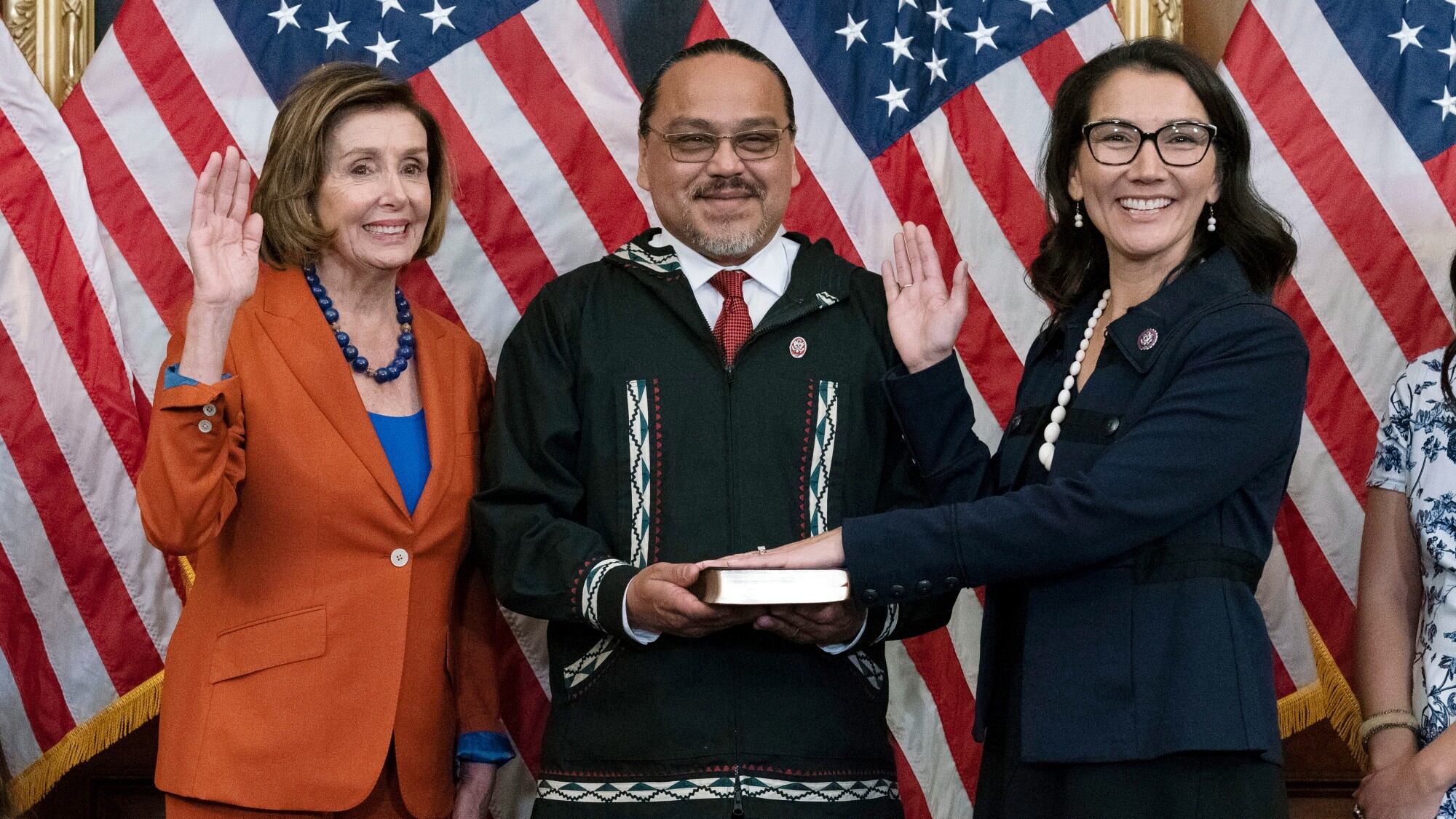U.S. Rep. Mary Peltola’s husband has died in an airplane crash, her office said in a statement Wednesday.
“We are devastated to share that Mary’s husband, Eugene Peltola Jr. — ′Buzzy’ to all of us who knew and loved him — passed away earlier this morning following a plane accident in Alaska,” her chief of staff, Anton McParland, said in the statement.
The National Transportation Safety Board said it is investigating the crash of a Piper PA 18-150 Super Cub that went down at 8:48 p.m. Tuesday under unknown circumstances near St. Mary’s, Alaska. St. Mary's is located about 440 miles (708.11 kilometers) west of Anchorage.
“The pilot flew a hunter and the hunter’s equipment to a remote location 64 miles away from St. Mary’s. After leaving the hunter, the plane took off to return and appears to have crashed in an area of remote, mountainous terrain," the NTSB said in a statement.
The pilot was the only person on board.
NTSB investigators were responding to the scene with the Alaska National Guard. The agency leaves identifying victims to local officials, but NTSB chairperson Jennifer Homendy held a news conference Wednesday to speak about a crash in western Alaska that killed the pilot who was the only person aboard, presumed to be Eugene Peltola Jr.
The congresswoman was returning to Alaska from Washington, D.C., to be with her family, and McParland asked for their privacy as the family grieves.
“He was completely devoted to his parents, kids, siblings, extended family, and friends — and he simply adored Mary. We are heartbroken for the family’s loss,” McParland said.
Peltola, an Alaska Democrat, was elected to a full term in the U.S. House in November, months after winning a special election following the death of U.S. Rep. Don Young. The Republican had held Alaska’s sole House seat for 49 years until his death.
Peltola, who is Yup'ik, is the first Alaska Native to serve in the U.S. House.
U.S. and Chinese officials say a trade deal between the world’s two largest economies is drawing closer. The sides have reached an initial consensus for President Donald Trump and Chinese leader Xi Jinping to aim to finalize during their high-stakes meeting Thursday in South Korea. Any agreement would be a relief to international markets. Trump's treasury secretary says discussions with China yielded preliminary agreements to stop the precursor chemicals for fentanyl from coming into the United States. Scott Bessent also says Beijing would make “substantial” purchases of soybean and other agricultural products while putting off export controls on rare earth elements needed for advanced technologies.
A new poll finds most U.S. adults are worried about health care becoming more expensive.
The White House budget office says mass firings of federal workers have started in an attempt to exert more pressure on Democratic lawmakers as the government shutdown continues.
President Donald Trump says “there seems to be no reason” to meet with Chinese leader Xi Jinping as part of an upcoming trip to South Korea after China restricted exports of rare earths needed for American industry. The Republican president suggested Friday he was looking at a “massive increase” of import taxes on Chinese products in response to Xi’s moves. Trump says one of the policies the U.S. is calculating is "a massive increase of Tariffs on Chinese products coming into the United States." A monthslong calm on Wall Street was shattered, with U.S. stocks falling on the news. The Chinese Embassy in Washington hasn't responded to an Associated Press request for comment.
Most members of the Federal Reserve’s interest-rate setting committee supported further reductions to its key interest rate this year, minutes from last month’s meeting showed.
From Wall Street trading floors to the Federal Reserve to economists sipping coffee in their home offices, the first Friday morning of the month typically brings a quiet hush around 8:30 a.m. eastern, as everyone awaits the Labor Department’s monthly jobs report.
The Supreme Court is allowing Lisa Cook to remain as a Federal Reserve governor for now.
Rep. John Moolenaar has requested an urgent briefing from the White House after Trump supported a deal giving Americans a majority stake in TikTok.
A new report finds the Department of Government Efficiency’s remaking of the federal workforce has battered the Washington job market and put more households in the metropolitan area in financial distress.
A new poll finds U.S. adults are more likely than they were a year ago to think immigrants in the country legally benefit the economy. That comes as President Donald Trump's administration imposes new restrictions targeting legal pathways into the country. The Associated Press-NORC Center for Public Affairs Research survey finds Americans are more likely than they were in March 2024 to say it’s a “major benefit” that people who come to the U.S. legally contribute to the economy and help American companies get the expertise of skilled workers. At the same time, perceptions of illegal immigration haven’t shifted meaningfully. Americans still see fewer benefits from people who come to the U.S. illegally.













